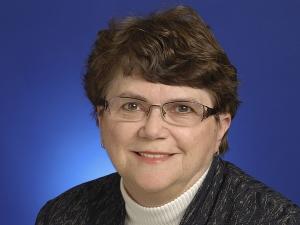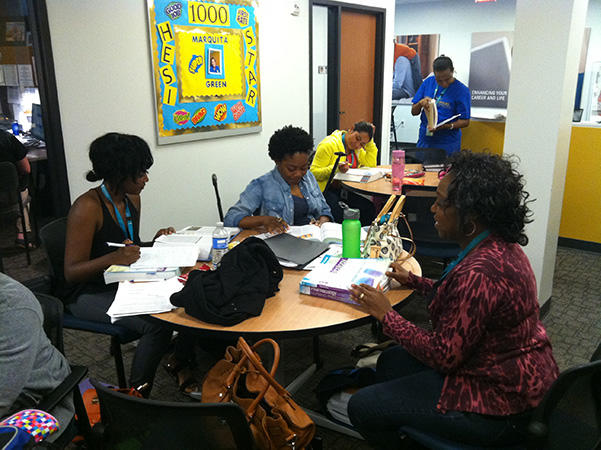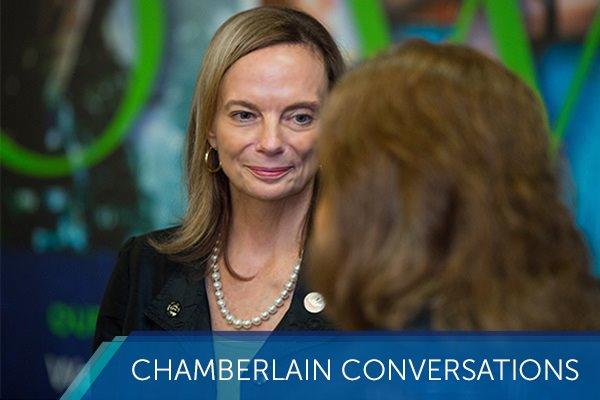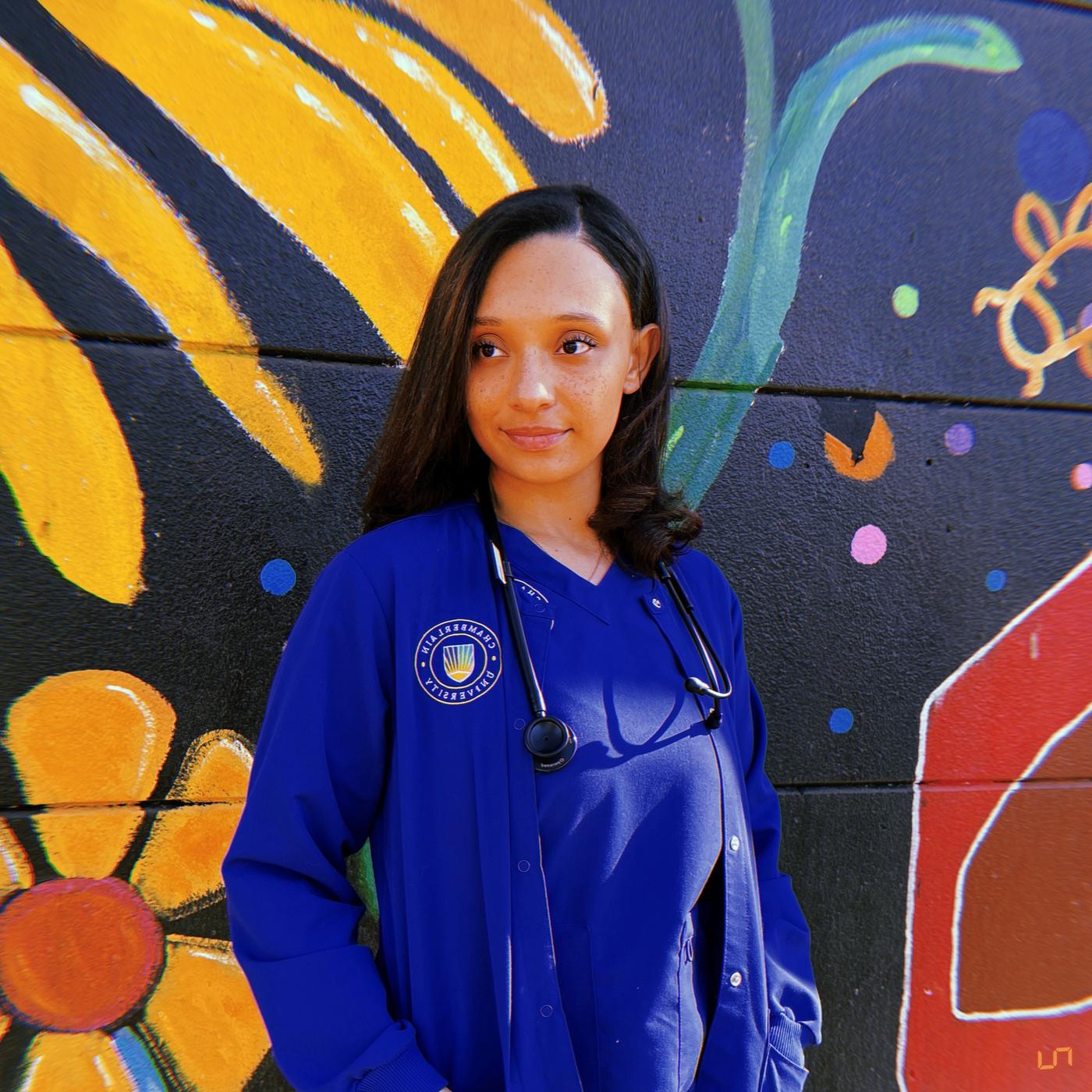Featured
Tags
Share
- Home / Blog / Campus News / Meet Nurse Educator Rebecca Sisk
Meet Nurse Educator Rebecca Sisk

Rebecca Sisk, PhD, RN, CNE, is an associate professor in Chamberlain’s graduate programs. She currently teaches and is the subject matter expert for NR-505 Advanced Research Methods: Evidence-Based Practice, NR-523 Assessment and Evaluation, and NR-620 Education Practicum.
What is your specialty?
I’ve had two specialties, geriatric nursing and nursing education. Sometimes I have combined them—I always volunteered to take students to the medical ward or nursing home when I taught in undergraduate programs. I have spent the last 24 years teaching both undergraduate and graduate students. I love teaching theory, research, and assessment and evaluation and have done a little research with U.S. Army reservists applying Nola Pender’s health promotion model.
What drew you to that specialty?
As a child, I always wanted to be a nurse as well as a teacher. Then I realized that someone has to teach the nurses. When I worked as a staff nurse, I noticed that I liked to work with students who were caring for our patients and felt a longing to do more teaching. As a diploma graduate, I was transformed by my baccalaureate program at the University of Illinois and discovered a fascination with academia. Where else can you get paid to be a lifelong learner?
Where has your career taken you?
For the first several years after graduating from a diploma program, I worked on medical-surgical units, usually part-time. After completing my BSN, I went right into graduate study in the MS in Nursing program at the University of Illinois in Peoria but also worked in home healthcare.
While working on my PhD at the University of Texas at Austin, I was a graduate assistant for Dr. Billye Brown, which was a great lesson in leadership and mentoring. After graduating from UT, I joined the U.S. Army Nurse Corps as a reservist, where I was the training officer for a MASH unit.
I also worked at the University of Illinois in Peoria teaching clinical nurse specialist and nurse practitioner students, and later worked as a professor and the director of assessment and evaluation in a small, private BSN program.
I stepped into online teaching for the first time in June 2007, when I was hired as an adjunct in Chamberlain’s RN-BSN program. I loved it from the very beginning and was happy to be hired onto the full-time online graduate faculty team in July 2010.
For you, what is the best part of your specialty? What is the biggest challenge?
I would say that I have been most proud of what my students have accomplished over the years. I have seen them become administrators, clinical nurse specialists, nurse practitioners, nurse educators, nurse midwives and much more. A few have become deans and I just found out that one of them is a Chamberlain adjunct in the graduate program! I love meeting former students at conferences and catching up with what they are doing.
My biggest challenge as a full-time online faculty member is time management. I am excited about the potential to use newer teaching methods in our courses, such as virtual reality, but have lots to learn about them!
Throughout your career, has there been a patient or a story that has stuck with you?
I’ve had some great patients, great teachers, and great students so picking one story is hard. Spending 10 days setting up and working in a MASH hospital at Ft. McCoy, Wisconsin, was a challenge, mostly due to the lack of showering opportunities we had. I wouldn’t want to repeat those 10 days, but it was a great training opportunity and I loved the mess hall!
What would you say you’ve been most proud of in your career?
When I worked as a director of assessment and evaluation at another school, we started out unaccredited, though the school had originally been an accredited diploma program. I helped write our self-studies for the Higher Learning Commission and the National League for Nursing Accrediting Commission, set up the document room with the help of an excellent secretary, and participated in meetings with our accreditation visitors. We were accredited with ease, and I felt we had done a remarkable job of preparing. What was interesting was the investment the students had in the accreditation process.
What is your advice to students?
Don’t be afraid to pursue your dreams and keep on being a lifelong learner. Remember that the best way to produce caring in students and co-workers is to treat them with care.
By Danielle Logacho
More from Campus News
Request More Information
To receive the Chamberlain University Program Guide, including associated career paths, please select a program of study.






